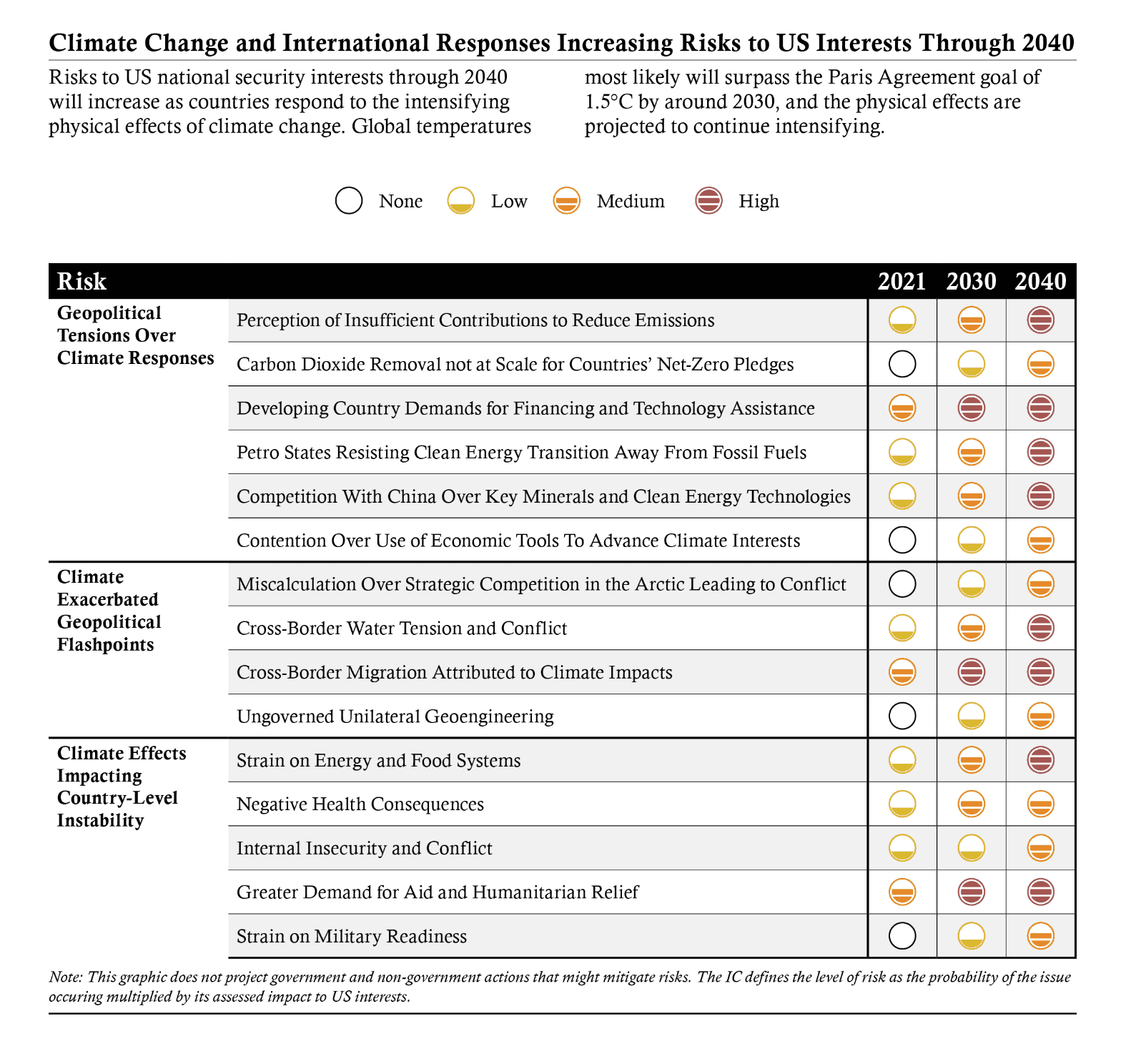
Dear Molly,
This might be too complex for you to answer in so few characters, but how does the CIA see climate change affecting intelligence gathering? #AskMollyHale
~ Just A Student
* * * * *
Hi Just A Student!
When people think of intelligence, they usually imagine a world swirling in secrets and spies, and traditional challenges related to great power rivalries and terrorism. However, the world also faces a different kind of threat… climate change.
Last year, on April 14, 2022, CIA Director William Burns gave remarks at Georgia Tech on “The Role of Intelligence at a Transformational Moment.” He was asked a very similar question to yours about the challenges of climate change in the intelligence sector.
Director Burns explained that as a foreign intelligence service, part of CIA’s responsibility is to highlight transnational issues like climate change so that U.S. policymakers can better understand its impact on different societies in different parts of the world. The consequences of climate change can aggravate problems—especially in fragile societies—such as economic insecurity, food insecurity, health, and the migration of people. It can even undermine the stability of governments and societies around the world.
This is why the Intelligence Community (IC), including CIA, has viewed climate change so seriously. To better understand the complexities and challenges climate change presents, here are five things the IC has recently created or done to help confront the threat.
* * * * *
The IC’s Worldwide Annual Threat Assessment for 2023
Every year, the IC produces what is known as the Annual Threat Assessment (ATA). The ATA reflects the collective insights of the entire IC, and the Director of National Intelligence (DNI) publishes a PDF of the unclassified ATA report on its website, which you can read here.
This year’s ATA, which was released in February, includes an entire section devoted to the negative effects of environmental degradation and climate change.
“Climate change will increasingly exacerbate risks to U.S. national security interests as the physical impacts increase and geopolitical tensions mount about the global response to the challenge. The increasing physical effects of climate change also are likely to intensify or cause domestic and cross-border geopolitical flashpoints.”
The report goes into greater detail about these risks, as well as issues that could arise this year that are related to climate change and the challenges of combating it. I encourage you to take a look at the report if you’re interested in learning more specifics.
President’s Intelligence Advisory Board Includes Climate Scientist
As the effects of climate change are increasingly being looked at through the lens of national security and intelligence, President Biden in January appointed a leading climate scientist and educator, Kim Cobb, to serve on the President’s Intelligence Advisory Board. The 16-member advisory board—which has been around for around seven decades—provides objective, expert advice on how well the IC is meeting the nation’s intelligence needs.
This is the first time a climate scientist has ever been appointed to the President’s Intelligence Advisory Board!
National Intelligence Estimate on Climate Change
In October 2021, at the request of President Biden, the IC released its first-ever National Intelligence Estimate (NIE) on the security challenges linked to climate change.
If you’re not familiar with NIEs, they are basically the most robust, authoritative documents produced by the IC that reflect the entire IC’s viewpoint on a national security issue. The Climate Change NIE is 27-pages long and includes several graphics and assessments about the national security impacts of climate change over the next 20 years!

From the 2021 National Intelligence Estimate on the security challenges linked to climate change.
I’m not going to go into a huge amount of additional detail, because you can read the NIE on the DNI’s website, but here are the report’s three key takeaways:
- Key Judgment 1: “Geopolitical tensions are likely to grow as countries increasingly argue about how to accelerate the reductions in net greenhouse gas emissions that will be needed to meet the Paris Agreement goals. Debate will center on who bears more responsibility to act and to pay—and how quickly—and countries will compete to control resources and dominate new technologies needed for the clean energy transition.”
- Key Judgment 2: “The increasing physical effects of climate change are likely to exacerbate cross-border geopolitical flashpoints as states take steps to secure their interests.”
- Key Judgment 3: “Scientific forecasts indicate that intensifying physical effects of climate change out to 2040 and beyond will be most acutely felt in developing countries, which we assess are also the least able to adapt to such changes. These physical effects will increase the potential for instability and possibly internal conflict in these countries, in some cases creating additional demands on U.S. diplomatic, economic, humanitarian, and military resources.”
In October 2021, the Agency announced the creation of our Transnational and Technology Mission Center to focus on cross-cutting, global issues critical to U.S. national security, including new and emerging technologies, economic security, global health, and yes, climate change.
Director Burns updated our organizational structure and approach in order to best position the Agency to address these current and future national security challenges.
The World Factbook Unveils New “Environment” Category
On Earth Day in 2021, CIA’s The World Factbook unveiled a new category, “Environment,” to provide the latest country data on climate, air pollutants, major infectious diseases, food security, waste and recycling, and more.
“We added the new category in response to the growing public interest in environmental issues,” according to The World Factbook senior editor. “Teachers, researchers, students, world governments, and many others use The World Factbook as a one-stop reference shop, and we’re excited to help inform others about the world in which we all live.”
To learn about the most pressing and important environmental problems facing each country, you can explore the “Environment” section by visiting any individual country’s page or you can visit the comprehensive category page here.
* * * * *
Climate change may not capture the public imagination like spy movies, terrorism, and global superpower conflicts, but hopefully I was able to provide you a little insight into why intelligence agencies care about climate change.
~ Molly
#AskMollyHale
